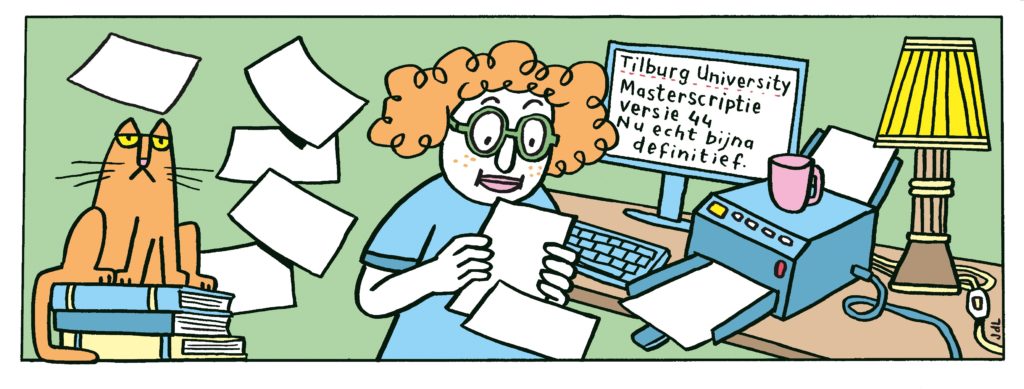Electric car increases competition between car companies
Wheels, a battery and an electric charging station: you need a lot of parts for an electric car. In his master’s thesis, former business administration student Daniël Stoffels investigated the collaboration between companies that supply all these parts. ‘Companies no longer just want to collaborate, but also compete.’

What is your thesis about?
‘In my research I focus on the collaboration between different players within an ecosystem. I can best explain this using an example that I use in my thesis; the automotive industry ecosystem, and specifically the developments of the past twenty years.
‘In this period, the sector, like many other industries, has undergone enormous changes. One of the most important developments is electrification, driven by sustainability and the need to limit the use of fossil fuels.
‘To make cars drive in a sustainable way, the transition to alternative energy sources is essential. But a car is a complex product, consisting of countless parts such as wheels, an engine, windows and a battery. This makes it difficult for a single company to produce a car completely independently.’
What does the collaboration between these companies look like?
‘For example, you have energy suppliers that facilitate charging stations, car manufacturers that build the vehicles and suppliers that supply essential components, such as batteries.
‘The battery is a crucial part of an electric car, but developing it is so complex that car manufacturers often outsource this to specialized suppliers. A car without a battery is not functional, and even with a battery, the car cannot operate without a good charging infrastructure. This shows how dependent these parties are on each other to create the full value of the product.’
How did you approach your research?
‘I divided the different types of companies within the ecosystem into three categories. First, the Original Equipment Manufacturer, or the car manufacturer. Then, the supplier, the supplier that supplies essential components, such as batteries or other car parts.
‘Finally, the complementor, a party that adds value indirectly, or without being directly part of the car’s manufacturing process. An example of this is an energy supplier that offers charging infrastructure.

‘Based on various business theories, I investigated how the mutual dependence of these companies influences their collaborations. In other words: what determines the way in which a car manufacturer enters into collaborations with a supplier, a complementor, or even with another car manufacturer?
‘With these theories as a starting point, I made predictions about how companies in this ecosystem collaborate and investigated how much these collaborations have changed over time.’
What did your research reveal?
‘Around 1990, in the early stages of the electric car industry, there was still a lot of uncertainty. Companies were highly dependent on each other to jointly develop the technology. This is known as the value creation phase, in which the focus is on collaboration to enable innovation.
‘As the technology became more concrete, especially from the early 2000s onwards, this dynamic changed. Companies no longer just wanted to collaborate, but also started to compete. Everyone wanted to be the first to bring a working electric car to the market.
‘My expectation was that collaboration would decrease as companies would focus less on joint development and more on maximizing value themselves: the so-called value capture phase.
‘My analysis indeed shows that the strength of collaborations has decreased over time. We also see this trend in the market more broadly. An extreme example of this is ASML, a Dutch company that has completely dominated the market for advanced chip machines.’
Is that a dangerous development?
‘The term geopolitical war has been used more and more recently and refers to the growing influence of countries and companies that control crucial technologies or raw materials. By keeping strategically determined products or innovations within their own borders or continent, they can exert geopolitical pressure on the rest of the world.
‘These types of dependency relationships can have major economic and political consequences. Suppose the US gains full control over AI technology and Europe lags behind, then we become extremely dependent on American companies. The same goes for China and electric cars: if Europe needs those cars, but China decides to raise export duties, then they will be in control and Europe will be in a weaker position.’
Master’s thesis
A literature study, experimenting in the lab or still working with SPSS? The students of Tilburg University write the most diverse theses. In the section Master’s thesis, Univers highlights one each month.
Author: Daniël Stoffels
Title: The temporal dynamics of collaboration within and across ecosystems: A study on Electrical Vehicle Ecosystems
Supervisor: Mohammad Nasiri
Grade: 8,5
Masters: Strategic management






